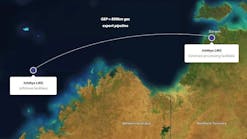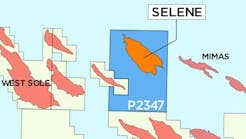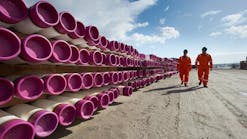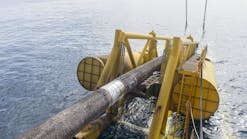When the European Commission published its proposals to centralize offshore safety and environmental regulation, its stated aim was to create common standards across Europe. It acknowledged the existing "world-class" regimes of the North Sea countries and sought to use these as a template which other, less established countries should raise their standards to meet.
Oil & Gas UK, the trade association for the UK offshore oil and gas industry, welcomes the European Commission's broad intent to improve safety by "leveling up" the rest with the best, but is strongly opposed to the form of legislation proposed – a regulation. Why? Oil & Gas UK believes it will result in the opposite of its intended aim and actually weaken safety.
As a major hazard industry, safety comes before everything else. The UK has well established and competent regulators, with decades of valuable knowledge and experience. The pivotal moment for the UK was thePiper Alpha disaster 24 years ago, which led to a fundamental change in the way safety was managed offshore.
So to shift the overall regulatory control away from member states over to Brussels, where there is no relevant experience or technical competence in these matters, represents a serious and unnecessary risk to the safety of offshore workers. Furthermore, the proposed EU legislation would require the UK government to revoke all its own world-class safety legislation and regulation to the extent it covers the same or similar ground to the EU regulation. That would be a highly retrograde process involving significant cost and time, all to no added value. Indeed it would prejudice UK offshore safety by diverting a significant amount of regulatory resources away from front-line issues and toward this wholly unconstructive labor.
An additional safety risk comes from the huge administrative burden that operators would face when having to replace their safety cases with new "major hazard reports," which would then have to be assessed and processed by regulators at a national level. The backlog of work for regulators would be considerable, and there is again the risk that regulators' attentions could be diverted away from front-line work to dealing with this backlog.
Both the UK and Scottish governments and all the leading political parties in the UK are aligned in opposition to the EU Commission's proposed regulation, which is seen as confusing and counterproductive. They agree that it would require a significant upheaval to change what is already a strong safety regime, and that there would be no perceivable gain to safety from doing so.
The leading UK trade unions, RMT and Unite, have also come to the same conclusion and have issued a joint statement with Oil & Gas UK that the EU Commission's proposals would seriously erode workforce safety. This joint statement mirrors similar alignments between industry and unions opposed to the proposals in both Norway and the Netherlands – where strong opposition to the Commission's plans have also been voiced.
A crucial point around the irrelevancy of the regulation is that 90% of all the oil and gas produced in Europe comes from just three member states – the UK, the Netherlands, and Denmark. These countries are, of course, the North Sea neighboring nations which the European Commission already regards as having world-class safety regimes.
Norway, not an EU member but part of the European Economic Area (EEA), has decided the proposed regulation is not within the scope of the EEA and therefore not applicable to Norwegian waters. Given that offshore oil and gas activity in Norwegian waters accounts for approximately half of all such activity in Europe, it therefore seems clear that the proposed regulation cannot now achieve its stated objectives and needs to be rethought.
Oil & Gas UK has been somewhat encouraged to hear that at a recent Energy Council meeting, Commissioner Günther Oettinger indicated the potential for flexibility in the Commission's approach to this matter. The association is ready to work with all interested parties to construct a well-worded directive that would encourage member states that do not currently achieve the recognized high standards present in the North Sea, to do so in a way which blends with established legislation. This would protect the existing strong safety regime in the UK and other North Sea countries, minimize inappropriate disruption to operators and regulators, and eliminate the additional risk that the proposed regulation presents.
Malcolm Webb
CEO, Oil & Gas UK
This page reflects viewpoints on the political, economic, cultural, technological, and environmental issues that shape the future of the petroleum industry. Offshore Magazine invites you to share your thoughts. Email your Beyond the Horizon manuscript to David Paganie at [email protected].




